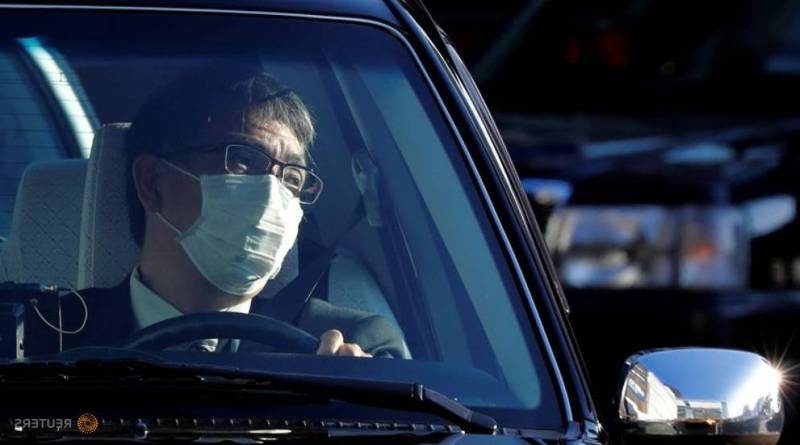Uber and their ilk are old pros at gaming the system to maximize profits as they undermine our nation's transit networks. But this time, they may have pulled off their most outrageous heist yet: getting taxpayers to pay 100 percent of unemployment benefits to their workers, while their multi-billion dollar companies get a free ride.
Buried in the Senate's $2-trillion coronavirus stimulus package is a provision that will extend, for the first time, unemployment benefits to gig workers — a long-overdue measure to protect millions of Americans that's especially essential in the age of COVID-19.
But not a penny of those benefits will be paid by the "rideshare" (read: tech taxi) giants: they'll be paid exclusively by taxpayers instead.
No W-2, no protections
The policy is the fruit of weeks of lobbying efforts from Uber, Lyft, and others. But few people believe that the companies pushed for the reforms out of a selfless desire to protect their "independent contractors," — and some think they're simply setting a precedent for future government support for their exploitative business model.
"We’ve seen companies like Uber and other gig economy companies really take this moment to put on a veneer of compassion and say that now is the time to protect their workers, but they’re doing it in a very self-interested way," said Brian Chen, staff attorney for the National Employment Law Project. "This is a moment to be wary of self-interested acts by companies whose business model brought us to this point."
Since their inception, tech firms like Uber and Lyft have famously refused to hire drivers as traditional employees, because doing so would require the companies to contribute to their workers' Social Security, Medicare, and worker's compensation insurance. (It was the subject of a particularly contentious lawsuit in California last year.) By hiring drivers as independent contractors, the rideshare companies also avoid paying into the federal and state unemployment insurance premiums — leaving it up to workers to register themselves with the state and pay those premiums themselves, which few can afford to do. (And, obviously, those drivers don't get employer-provided health care benefits.)
As a result, the average gig economy driver's wages end up at just $9.21 per hour, before healthcare or unemployment insurance premiums.
"I'd bet you dollars to donuts that there are almost no Uber drivers in America who pay for their own unemployment insurance," said tax law attorney Scott Wilson.
Benefits for gig workers — but who knows how much
Of course, all Americans who are struggling should get some benefit from the federal bailout — but experts argue that it shouldn't have to come on behalf of companies that have skirted the rules and created a new underclass of vulnerable workers.
"While the Senate should be applauded for including independent contractors in the relief bill, it is really important to note that this package is being funded entirely by taxpayers — that Uber and Lyft aren't paying for it," said Chen. "It’s letting app companies like Uber off the hook, essentially."
Even with this level of massive government intervention, drivers will still be independent contractors when all is said and done — a fact that will continue to leave them vulnerable as COVID-19 wears on. The coronavirus relief bill is expanding federal unemployment benefits, but won't impact state unemployment benefits — dollars that drivers still may not have access to if their governors fail to draft separate relief legislation. Additionally, workers with variable incomes have a hard time receiving unemployment benefits in the best of times; after all, it's hard to determine the size of the benefit a worker is owed when the size of her paycheck is subject to the whims of a surge pricing algorithm. Experts are warning gig economy workers to brace themselves for long delays.
And then there's the enormous unanswered question of what, exactly, any independent contractor will need to do to prove he or she is eligible for COVID-19 relief. The reason that self-employed people have historically been excluded from unemployment benefits is because benefits are typically contingent upon the worker being involuntarily laid off of furloughed, rather than quitting or being fired for cause.
"If you're an independent contractor, it's technically impossible to involuntarily force yourself out of a job," said Wilson. "I don't know how they're going to find a way to determine the threshold for eligibility so everyone doesn't just up and quit."
It's just one of many weak spots in our social safety net that Congress appears willing to simply forget. Beyond cleaning up Uber's employment mess, Senate negotiators are reportedly trying to figure out a way to get money to the cruise ship industry, even though most cruise ships are intentionally registered outside the United States to avoid basic regulations and expenses associated with being an American company.
Journalist Tom Scocca put it best:
'This can never happen again.'
However the details shake out, advocates hope that legislators will take steps to make sure that e-taxi companies can never take advantage of tax-payers again — even if we have a moral obligation to protect gig economy workers now.
"If rideshare companies really cared about their workers, they’d immediately reclassify workers as employees," said Chen. "Then they’d pay their back taxes for all the years those workers weren’t classified as employees. At the least, they’d take all of their lobbying money they’re spending on maintaining their current business model and redirect it to emergency aid for their drivers. That would be the right thing to do. This can never happen again."






